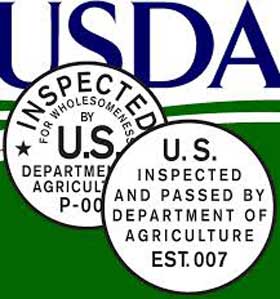Three current and one retired USDA officials are criticizing the Hazard Analysis and Critical Control Point Inspection Models Project (HIMP) at hog processing facilities. HIMP increases line speeds and lets company employees do some of the inspection work formerly done by government employees.
 They say that food safety has been compromised as a result of these projects. Affidavits were released last week by the Government Accountability Project detailing the problems. As a result of these documents, GAP Food Integrity Campaign wants Hormel Foods to reduce line speeds at its facilities.
They say that food safety has been compromised as a result of these projects. Affidavits were released last week by the Government Accountability Project detailing the problems. As a result of these documents, GAP Food Integrity Campaign wants Hormel Foods to reduce line speeds at its facilities.
USDA released an assessment of HIMP in November 2014, stating that the five participating plants are performing as well as those under the current inspection system. In one of the affidavits, an inspector stated “when the agency switched to the HACCP novel, they gave up command and control and gave the regulated industry free reign to do as they please. And now even more of USDA’s control will be lost if the agency switches to the HIMP model.”
The affidavits state that although the line speeds have increased, there are still the same number of inspectors on the line. Quicker line speeds make it more difficult for employees to notice flaws on the animals, and more difficult to incise lymph nodes on the carcasses. One inspector stated that “monitoring company inspectors is a lot more work for the USDA inspectors because lines are going way too fast.” That person also said that company inspectors “don’t seem to have much training.” And “plant inspectors don’t actually want to shut off the line to deal with problems they spot on the job.” Those are criticisms that opponents of the HIMP plans were worried about before implementation.
The most current outbreak involving pork was a Salmonella outbreak linked to a street festival in Minneapolis, Minnesota in August 2013. At least 80 people were sickened in that ONE outbreak. Pork sold at the festival was purchased from a market and resold. The Minnesota Department of Agriculture found that the pork had low levels of the pathogenic bacteria and that the cross-contamination occurred during handling of the pork.




